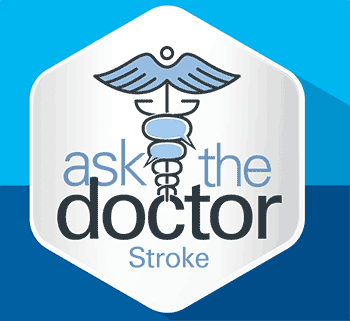Ask the Doc: Stroke
May 17, 2016 May is Stroke Awareness Month, a time to bring awareness to the seriousness of strokes. According to the CDC, strokes are the cause of 1 in every 20 deaths, making it one of the leading causes of death in the US. And when a stroke happens, every second counts.
May is Stroke Awareness Month, a time to bring awareness to the seriousness of strokes. According to the CDC, strokes are the cause of 1 in every 20 deaths, making it one of the leading causes of death in the US. And when a stroke happens, every second counts.
Dr. Paul Gilreath, a neurologist with Walker Baptist Medical Center, answered some common questions about strokes to give you the information you need to know.
What is a stroke?
A stroke is a medical condition where blood flow to the brain is compromised. The most common type of stroke is known as an “ischemic stroke." This type of stroke occurs when a blood clot forms in the blood vessels of the brain. In some cases, a blood clot may break loose from another location, such as the heart or other arteries, and float upstream, eventually lodging in the brain. In either case, blood flow is restricted to that area of the brain and brain tissue is damaged, resulting in a stroke.
Is there any way to prevent a stroke?
The most important aspect of stroke care is prevention. Certain medical conditions, including high blood pressure, diabetes, high cholesterol and smoking, put you at a higher risk for stroke. You can also watch your diet, keep up your activity level, and avoid smoking -- all of these small changes lead to a healthier lifestyle. You should also see your primary care physician to discuss if medications are appropriate.
What are symptoms of a stroke?
I like to use the pneumonic FAST. FAST stands for “face," “arms," “speech," and “time." “Face” refers to any sudden change in facial symmetry, such as a droop on one side of the mouth. “Arms” includes any weakness or loss of sensation in one arm, but also, this includes any such changes in one leg. “Speech” refers to any slurring of the speech or inability to speak or understand others talking to them. “Time” is crucial, or as we say, “time is brain” and means WHEN the person started having symptoms. Please note when symptoms occur and go to the emergency room, or call 911, immediately.
Why can’t some people tell they are having a stroke?
Stroke symptoms may be mild and difficult to notice. Other times, stroke symptoms can affect your thinking, and ability to perceive your symptoms. If any of your family or friends notice a change in your appearance or behavior and suspect a stroke, urgent treatment should be sought at your local ER.
What should you do if you think someone is having a stroke?
Call 911 or get to the nearest emergency room at first signs of a stroke.
Why do you need to ask fast during a stroke?
Again, “time is brain." There is treatment available for persons who are seen in the ER within a few hours of their stroke onset. We now have a medication called TPA, which is a “clot buster," which, if given early enough, can dissolve the clot and reduce your risk of permanent disability.
What are the after effects of a stroke?
The after effects of strokes vary widely, but can include permanent weakness or paralysis, changes in sensation, speech difficulties, vision loss, or ability to think clearly. In some cases, individuals will need ongoing nursing care depending on their degree of disability.
How can you help someone who is recovering from a stroke and what does stroke recovery and treatment look like?
The patient’s needs will depend on the degree of disability. This will vary between patients, but could include assistive devices for walking, speech therapy, and in some severe cases, feeding and nutritional support. Round the clock nursing care may also be needed. There is strong support for early and aggressive rehabilitation to reduce the ultimate degree of disability. Patients who have had a stroke will usually need to be on a blood thinner such as Aspirin or similar medications to prevent future strokes. In some cases, patients may require Coumadin or other more powerful blood thinners. Also, correction of the underlying stroke risk factors is essential for further prevention. Other periodic testing may be needed as well. Any patient affected by stroke should make an appointment with a neurologist for ongoing care.
What is a mini-stroke or transient ischemic attack(TIA)?
A mini-stroke or TIA is essentially when someone develops stroke symptoms and those symptoms resolve completely within a short period of time. This can occur for a number of reasons. A TIA may be a sign that a person has an increased risk for developing an actual stroke. Similar treatment may be given as previously noted including blood thinners. Also, it is very important that you are followed by a neurologist as well.
Do you have a question you would like a doctor to answer? Please email [email protected] and you might see it in the next column!
If you would like to make an appointment with Dr. Gilreath or another Brookwood Baptist Health physician, please call 877-844-3258 or visit brookwoodbaptisthealth.com. Ask the Doc is brought to you by Brookwood Baptist Health.
